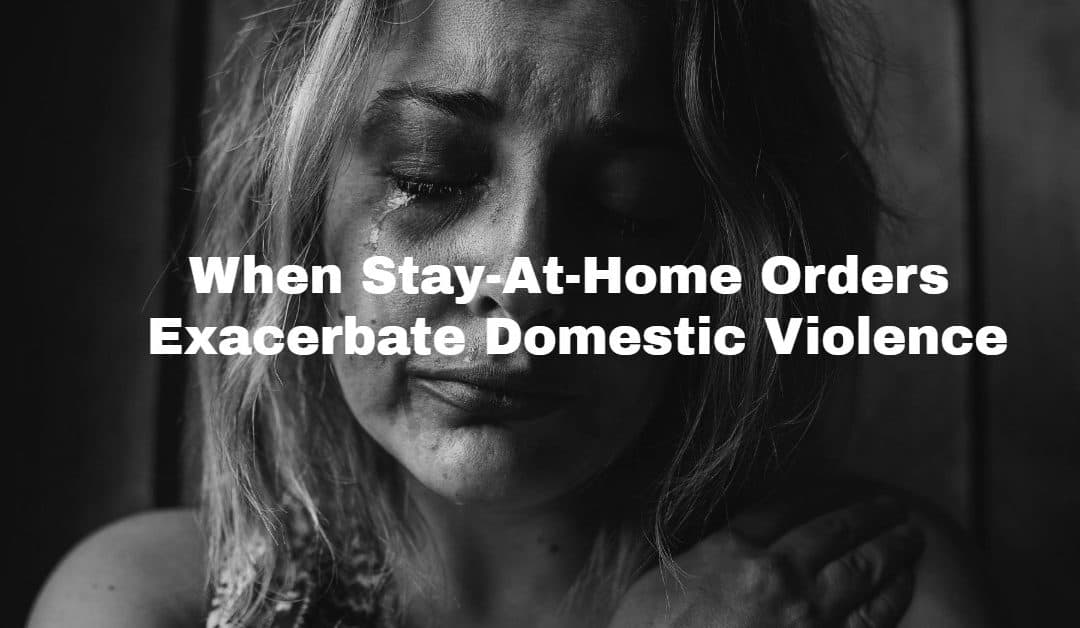With the advent of COVID-19, Americans are confronting numerous challenges and changes, from work to school to family relationships. The stay-at-home orders have intensified the societal upheaval we all face. Although enacted to prevent the spread of corona-virus, these stay-at-home orders have exacerbated another serious and dangerous situation — domestic violence.
Forced to stay at home with seemingly nowhere to go and no one to turn to, many individuals are increasingly suffering at the hands of domestic abusers. State-mandated movement restrictions have compounded the severity and dangerousness of harmful domestic environments. However, survivors of domestic violence are not without recourse.
Resources for domestic violence survivors
Of course, a victim of domestic violence should immediately call 911 and seek help right away. However, due to fear, shame, or a desire to protect the abuser, many will not contact the police directly.
Even if the survivor does not call 911, he or she can still contact the National Domestic Violence Hotline. Trained advocates are available 24/7 to talk, email, or live chat with survivors. They can provide advice, help survivors create specific safety plans, and furnish resources and recommendations for safely exiting dangerous situations. However, the Hotline does not give legal advice nor can they serve as legal advocates on a survivor’s behalf.
Other resources include RAINN National Assault Hotline, which provides free and confidential advice for sexual assault survivors. Moreover, because shelters are considered essential services, survivors may seek respite in shelters located throughout North Carolina even during this pandemic. You can look up operational shelters in the N.C. Domestic Violence Programs Directory.
Domestic Violence Protective Orders
Depending on the situation, a survivor may also wish to file a Domestic Violence Protective Order (DVPO). This is a specific type of restraining order designed to protect domestic violence survivors. If the judge orders the DVPO, your abusive partner must not come near you or your children. Moreover, law enforcement have the power to criminally charge the abuser for violating the DVPO.
There is no charge to file a DVPO. However, once you file, you must prove to the judge that you have a personal relationship with the abuser and that you have suffered from domestic violence at the hands of the abuser. Sometimes survivors do succeed in proving their case without a lawyer’s help. However, it may be wise to seek attorney representation. An attorney will advise you and guide you through the necessary court filings and judicial proceedings.
Criminal charges
A survivor may also bring criminal and/or civil charges against his or her abuser. In North Carolina, a survivor is not limited to choosing one or the other. The purpose of pressing criminal charges is to punish the wrongdoer and prevent him or her from committing future bad acts. The sentence the judge imposes is designed to achieve this goal. Punishment may range from jail time, community service, anger management classes, or a restraining order.
Civil lawsuits
There are reasons why a survivor might bring a civil lawsuit in addition to pressing criminal charges; in fact, survivors often file civil lawsuits while criminal proceedings are underway. By filing a civil suit, the survivor can recoup losses from property damages, lost wages, medical bills, pain and suffering, and punitive damages.
These monetary damages are not recoverable in a criminal proceeding. Keep in mind, however, that while criminal charges are designed to protect the survivor and prevent the abuser from future violence, civil suits provide only money, not physical protection.
Each state has different laws when it comes to filing civil suits for domestic violence. For example, the amount of monetary recompense you seek dictates where you should file your lawsuit and may vary depending on the county in which you reside.
Moreover, different jurisdictions define domestic violence differently — for example N.C. General Statutes Chapter 50B-1 lays out the elements of domestic violence that a plaintiff must prove in North Carolina state courts. If you need advice and representation during a civil lawsuit, you should consult a lawyer to provide guidance during this stressful time.
To conclude, state mandated stay-at-home orders have promulgated a spike in domestic violence, placing many victims in danger. But it does not have to be this way. If you are placed in an unsafe situation, immediately call 911. Also, you can reach out to one of the many resources available, including the National Domestic Violence Hotline. Other options include filing a DVPO to force the abuser to stay away from his victim and pressing criminal charges. Finally, a survivor may file a civil lawsuit to recover for monetary losses, pain and suffering, and other losses the abuser has caused.
Have questions? Contact Plekan Law at (919) 653-1976.

